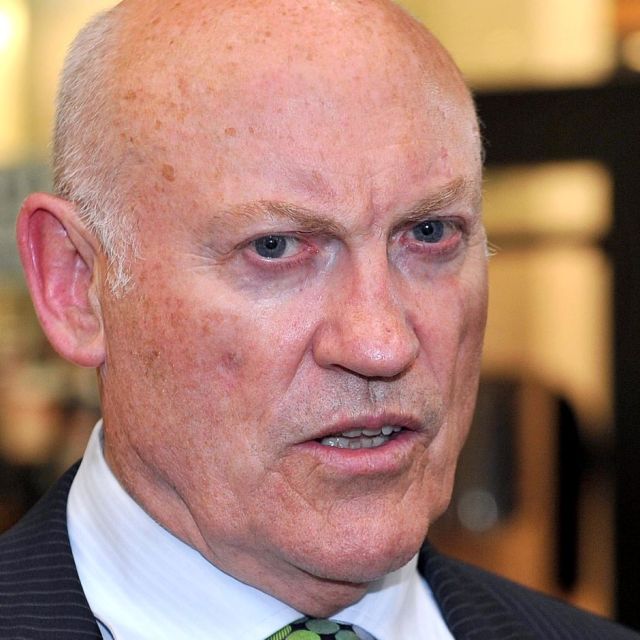
We all know that the Independent Commission Against Corruption (ICAC) is busy at the moment. One or two troubling matters that go to planning applications in the coal mining industry.
ICAC was set up in 1989 by former Liberal Premier, Nick Greiner. Ironically enough, Greiner was referred to ICAC in 1992 and found to have corruptly offered former Liberal turned Independent, Terry Metherell, a public service position, as a director of the Environmental Protection Authority.
On accepting the position Metherell would have been required to resign his parliamentary seat, causing a by-election that the Liberals were sure they could win. A handy result for the minority government of the time.
Metherell gave evidence to ICAC that his resignation was indeed part of a package negotiated with Greiner and the Environmental Minister, Tim Moore. This followed his initial approach to the Liberal Member for Wakehurst, Brad Hazzard.
During the ICAC hearing, Greiner and Hazzard admitted that their statements to the inquiry were wrong. The ICAC Commissioner, Ian Temby, found that Greiner would be seen by a “notional jury as conducting himself contrary to known and recognised standards of honesty and integrity.”
He also found against the Environmental Minister, Tim Moore, who was central to the job offer. Both Greiner and Moore resigned. The NSW Court of Appeal found that ICAC had “exceeded its jurisdiction” in ruling against the two ministers.
A parliamentary committee that examined ICAC’s powers following the court ruling found that the section of the ICAC Act on which the appeal was based was too narrow in its definition of corrupt conduct. The legislation was subsequently amended to give effect to ministerial and parliamentary codes of conduct.
Brad Hazzard is still the Liberal Member for Wakefield. He is also the Minister for Planning and Infrastructure. When he was looking for a couple of likely candidates to chair what he called an ‘Independent Review’ of the NSW Planning System, his old crony Tim Moore got a Guernsey alongside Ron Dyer, a former Labor MLC.
Their report noted the lack of public confidence in the planning system which was influenced by “a procession of investigations before ICAC.”
Political influence in NSW has long been bought by the dominant sector of capital, from the squattocracy to property developers and would be mining magnates. Now the promised riches of CSG has attracted big mining capital and the hegemony of finance capital has helped spawn a new breed of cowboy capitalists ready to sink a mineshaft in their mothers’ backyard and anywhere else where there is a quid to be made.
It took the better part of 200 years from the rum corps rorts for NSW to establish an authority to protect the public interest and prevent breaches of public trust. David Ipp, the ICAC commissioner investigating allegations against the Obeid family and former resources minister Ian Macdonald over coal-exploration licences, has offered some advice to the NSW Premier Barry O’Farrell.
Commissioner Ipp said it was open to the NSW Planning Department to apply a “public interest” test to Cascade Coal’s application to develop an open-cut coalmine at Mount Penny.
The test could take into account evidence that unfolded at ICAC hearings since November 2012. The Premier told parliament that he would follow this advice, a decision which opens up the prospect of Cascade Coal losing mining rights worth $500 million.
The capital capers in the coal mining industry follow a long tradition of land-grabbing that CSG mining promises to continue. As Dr. Philip Pells, a civil engineer with four decades experience in geotechnical and groundwater engineering, noted in the Newcastle Herald on March 1, “The NSW government listing of exploration licences for CSG totals 189,567 square kilometres, almost 19 million hectares.”
This will no doubt please the Liberal MP, Scot MacDonald, a member of the state government inquiry into the CSG industry who, in a dissenting report, said “ It is difficult to reach any other conclusion than the coal seam gas industry should be developed as quickly as possible.”
Yes, well he’d know wouldn’t he? Shortly after the inquiry delivered its findings in May 2012, he took up the generous offer from Santos, one of the largest CSG companies, of free flights and accommodation in Tasmania to join with Santos at a forum on CSG and agriculture. Perhaps he told the orchardists how to frack apples.
The sober advice from Dr. Pells, a scientist who does know is that, “To allow CSG mining to proceed before more is done to understand its impact is a reckless gamble with our future.”